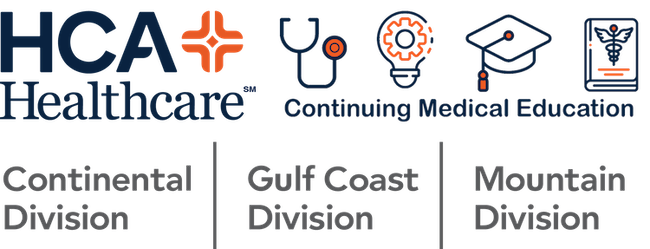Title
Category
Credits
Event date
Cost
- EMS Airway
- 1.00 AMA PRA Category 1 Credit™
- 1.00 Attendance
$0.00
Prehospital airway management is an important skillset for the EMS provider, especially with the pediatric patient. Respiratory distress and arrest can be seen commonly in the field and can be one of the most stressful prehospital calls to run. This activity outlines the best practices in pediatric airway management in the prehospital setting and focuses on how to improve techniques in doing them. Dr. Cella will also discuss case reviews and current protocols.
- EMS Medical
- 1.00 AMA PRA Category 1 Credit™
- 1.00 Attendance
$0.00
Sepsis patients can sometimes be difficult to manage in the prehospital setting. Dr. Eric Hill discusses what sepsis is, what type of patients you will see it in, and how to treat them. He also reviews best practices and utilizing capnography to assist in identifying these patients. Lastly, Dr. Hill goes over case reviews to help solidify the reviewed information.
- EMS Trauma
- 1.00 AMA PRA Category 1 Credit™
- 1.00 Attendance
$0.00
Patients with traumatic head injuries can be difficult to care for. Dr. Ashley Mull, an Emergency Medicine Physician with years of experience, discusses neurotrauma that is relevant to the first responder. She will review what neurotrauma is, how it presents in the field, and best practices in treating these patients. Lastly, Dr. Mull will do case reviews to solidify the newly learned information.
- EMS Medical
- 1.00 AMA PRA Category 1 Credit™
- 1.00 Attendance
$0.00
Toxicology cases can be complicated to run for the first responder, let alone when your patient is a pediatric one. Dr. Dyan Luyten is an experienced emergency physician who discusses best practices with running toxicology calls in the field. During the lecture, he also discusses current protocols for EMS and things that have worked for him over the years in caring for these patients. At the end of the lecture, several case reviews are done to wrap up the newly learned and reviewed information.
- EMS Airway
- EMS Cardio
- 1.00 AMA PRA Category 1 Credit™
- 1.00 Attendance
$0.00
Running and managing a cardiac arrest call takes organization and precative for the prehospital provider to be proficient at them. Dr. Dhaliwal, an emergency medicine physician, discusses the ACLS standards of prehospital cardiac arrests. We review new methods of ventilation, best practices, and tips on scene management. Lastly, Dr. Dhaliwal will do case reviews to discuss the material further.
- EMS Medical
- 1.00 AMA PRA Category 1 Credit™
- 1.00 Attendance
$0.00
This case-based presentation will cover a variety of stroke cases that EMS have responded to. We will review best practices in stroke care and how to use it applies to EMS. This was presented during the COVID-19 Pandemic and thus includes the complications and considerations related to COVID-19 and caring for stroke patients.
- EMS Medical
- 1.00 AMA PRA Category 1 Credit™
- 1.00 Attendance
$0.00
There are multiple factors for the first responder to remember when treating toxicology patients. Dr. Jeff Beckman is an experienced emergency physician who discusses best practices with running toxicology calls in the field. During the lecture, he also discusses current protocols for EMS and things that have worked for him over the years in caring for these patients. At the end of the lecture, several case reviews are done to wrap up the newly learned and reviewed information.
- Cardiovascular Diseases
- 1.00 AMA PRA Category 1 Credit™
- 1.00 Attendance
$0.00
Arrhythmia entails a broad spectrum of disorders of heart rate and rhythm abnormalities. Arrhythmia is broadly categorized into bradyarrhythmias and tachyarrhythmia based on the heart rate. They are further divided according to the origin, means of transmission, and syndromes associated with it. Patients with an arrhythmia may exhibit a broad spectrum of clinical presentation from being entirely asymptomatic to sudden cardiac arrest.
- Neonatology
- Pediatric & Adolescent Medicine
- 1.00 AMA PRA Category 1 Credit™
- 1.00 Attendance
$0.00
Care of the late preterm infant continues to advance and nutrition is a cornerstone of this care. Implementing evidence-based practice as the standard of care will further enhance the daily clinical care that is provided. This activity has been designed to review the appropriate nutrition that is essential for the growth and development of late preterm infants. Early administration of optimal nutrition to preterm birth survivors lowers the risk of adverse health outcomes and improves cognition in adulthood.
- Internal Medicine & Subspecialties
- Pediatric & Adolescent Medicine
- 1.00 AMA PRA Category 1 Credit™
- 1.00 Attendance
$0.00
Diabetic ketoacidosis (DKA) is a serious complication of relative insulin deficiency affecting primarily type-1 diabetes mellitus (DM). DKA can occur in type-2 DM when insulin levels fall far behind the body’s needs. DKA is so named due to high levels of water-soluble ketone bodies (KBs), leading to an acidotic physiologic state. Ketone bodies, while always present in the blood, increase to pathologic levels when the body cannot utilize glucose: low blood glucose levels during fasting, starvation, vigorous exercise, or secondary to a defect in insulin production.

 Facebook
Facebook Twitter
Twitter LinkedIn
LinkedIn Forward
Forward